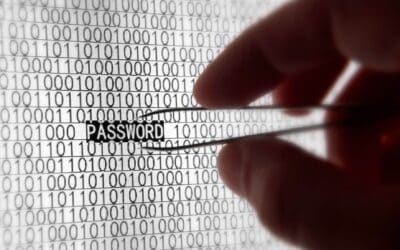With the recent attacks that took place this past week, the world is aghast at the actions of radicals in their campaign of terror. Officials within the US government are quick to direct attention and blame at encryption software, without which, they claim, they would be able to better prevent terrorist plots. True, without encryption, governments and other technically-inclined individuals would be able to easily intercept communications. However, encryption exists as we, as a people, have a right to privacy.
 As computing and processing power has increased, the algorithms and methods used for encryption software have also improved significantly. Codes and codebreakers have been used in communications for thousands of years. Modern messaging utilizes end-to-end encryption for the privacy of the users… all users. There will always exist a small group of deviants that are using these technologies for nefarious purposes. Government agencies want unfettered access to ALL communications to better monitor these threats. The government wants to have backdoors in encryption software for the purposes of protecting the public. By that rationale, they should have a copy of everyone’s house key just in case they need to drop in and keep things safe.
As computing and processing power has increased, the algorithms and methods used for encryption software have also improved significantly. Codes and codebreakers have been used in communications for thousands of years. Modern messaging utilizes end-to-end encryption for the privacy of the users… all users. There will always exist a small group of deviants that are using these technologies for nefarious purposes. Government agencies want unfettered access to ALL communications to better monitor these threats. The government wants to have backdoors in encryption software for the purposes of protecting the public. By that rationale, they should have a copy of everyone’s house key just in case they need to drop in and keep things safe.
Using these terrorist attacks as justification for government surveillance on the public is a skewed cause and effect relationship. Recent efforts to force companies like Apple to unveil their encryption for the “best interests” of everyone have been thwarted by the encryption methods themselves. Apple removed itself from the equation by utilizing “end-to-end” encryption, which prevents anyone except the sender and receiver to read the messages sent between them. With end-to-end encryption, Apple doesn’t store the decryption keys themselves and is unable to decipher the messages. WhatsApp, another messaging software that is wildly popular in Europe and Asia, is also being lambasted for using end-to-end encryption and was seemingly used by some of the perpetrators of the Paris attacks.
Even messaging through a gaming system has come under scrutiny, where authorities found a Sony Playstation 4 (PS4) at one of the perpetrator’s home. Wild news stories spun off stating that terrorists are using the PS4 to plan attacks. The problem is that the Playstation network isn’t using end-to-end encryption and Sony can monitor communications on their own network. There’s nothing more damning to a logical argument than hard facts, but why let that stop a dozen news stories from stirring the pot?
Even if back doors are implemented in encryption software to give national security agencies access to better protect and serve, by no means will this solve their problem. If major encryption vendors comply, that doesn’t stop third-parties from coding their own. Open source and custom software are commonplace and widely used, and there is no stopping people from using whatever methods they want to maintain their privacy.
There is a fine line that is treaded between public safety and privacy. Wide-sweeping Draconian measures designed to eliminate all threats of terrorist acts is not the solution. History proves that there will always be another way to circumvent whatever methods are in place to prevent prying eyes. Codes are made to be broken. Where we need to take care is in the liberties we relinquish in the name of maintaining our safety.




